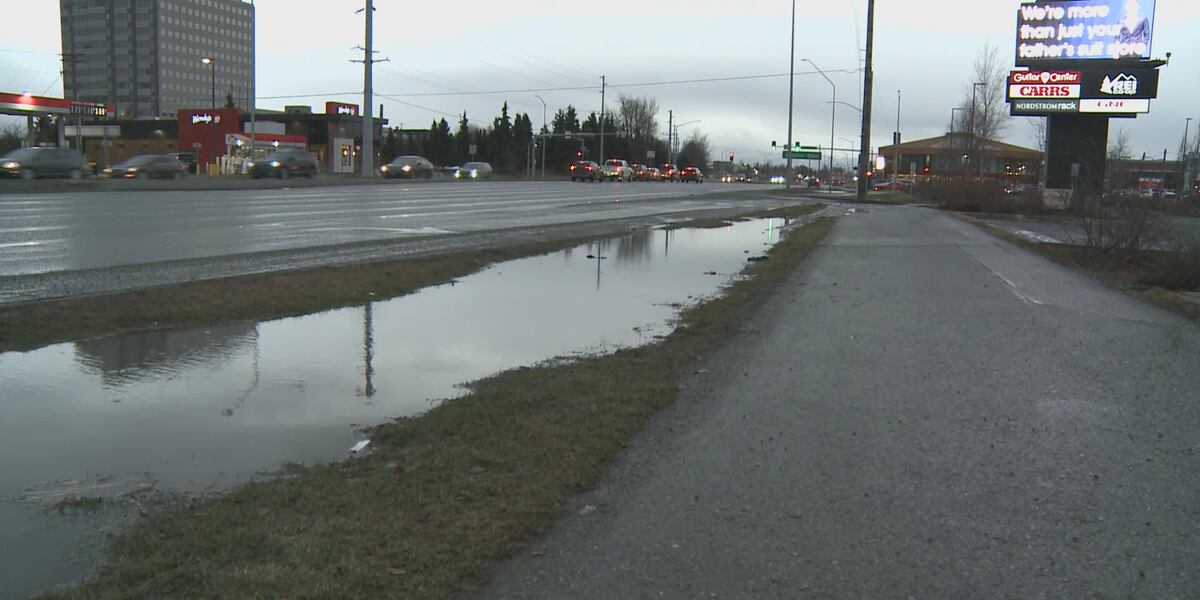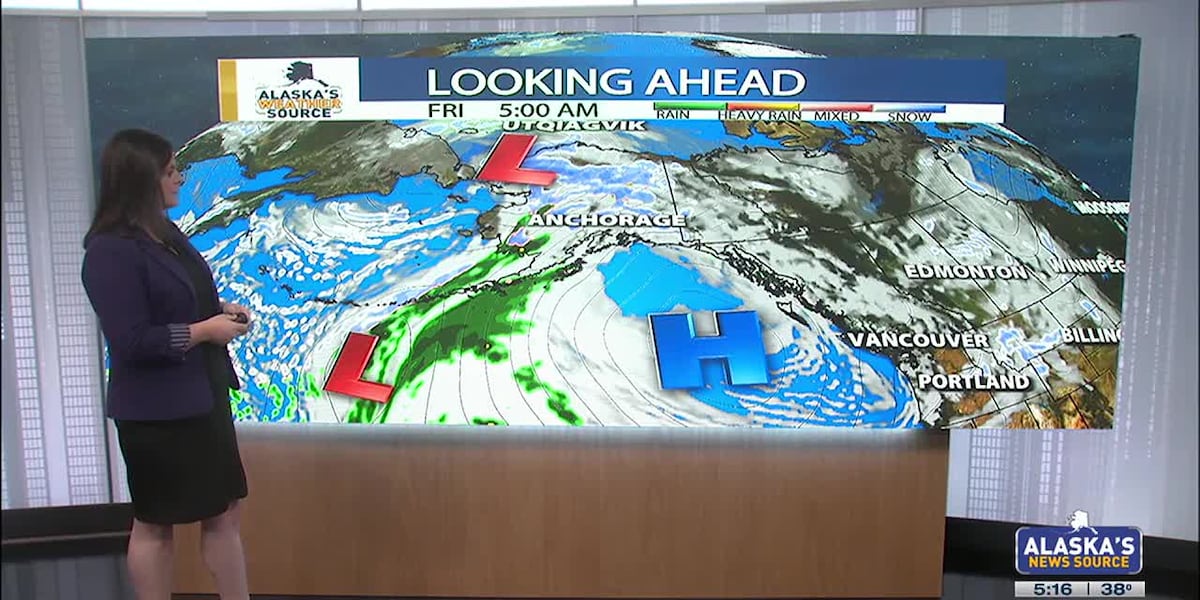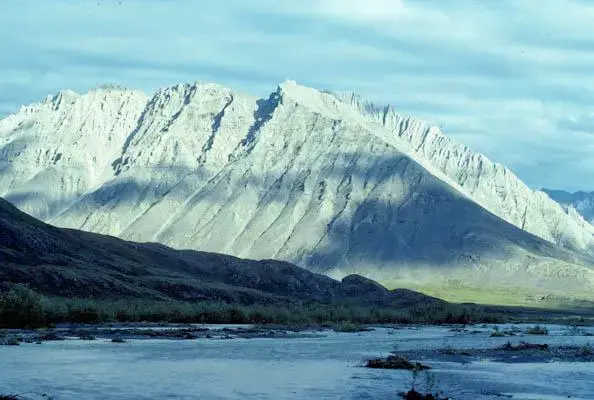Anchorage attorneys and advocates are preparing local immigrants without citizenship for a Trump administration that, in its first few hours on Monday, pushed ahead sweeping actions on immigration.
Under former President Joe Biden, immigration surged to its highest in American history, averaging about 2 million people per year, according to the Congressional Budget Office. In an executive order on Monday, President Donald Trump declared a national emergency at the southern border to address what the order called a “catastrophic immigration crisis.”
“There’s a lot of fear,” said Anchorage immigration attorney Lara Nations. “Having information is powerful, and empowers people take control of their own life, and helps address some of the fear.”
Local advocates say they have set out to meet what they say is a profound need among immigrant communities: the need for information.
In Alaska, about 8% of the state’s total population is foreign-born — close to 60,000 people, according to 2023 Census Bureau statistics. That population includes people with a wide range of statuses, including those who reside in the U.S. both lawfully and unlawfully. It includes: those who have become citizens through naturalization, green-card holders on a path to citizenship, a variety of visa holders, those with temporary protected status, refugees and asylees who have fled war or persecution in their home nations, and those without documentation, according to the Census Bureau.
Some of those immigrants may be vulnerable to deportation in an administration that’s proven unfriendly to them, said American Civil Liberties Union of Alaska executive director Mara Kimmel, referencing Haitian immigrants with legal status in Springfield, Ohio, who Trump has repeatedly called “illegal” and whose status he’s threatened to revoke.
But it’s hard to say exactly who will be at risk of deportation, or how many, she said.
That’s, in part, because it’s unclear which populations the Trump administration is prioritizing taking action against.
Trump campaigned on the mass deportation of millions of unauthorized immigrants.
But many of the people without permanent status in the United States have permission to be here, said Nations.
That includes 2.5 million asylum-seekers awaiting their claims, hundreds of thousands of people granted humanitarian parole from countries like Cuba, Haiti, Nicaragua, Venezuela, Ukraine and Afghanistan, and the half-million undocumented people brought to the U.S. as children who are protected under an Obama-era law, according to the Pew Research Center and National Immigration Forum.
Also, it’s not clear whether some of the new policies will survive the courts. On his first day in office, Trump signed an executive order to end birthright citizenship in a move that’s already been challenged in federal court, then blocked by a federal judge on Thursday. In a statement this week, Alaska Attorney General Treg Taylor said he didn’t have a position on whether Alaska may defend or oppose the order, but said that “it is important to address the crisis at the border and stem the tide of illegal immigration.”
“The truth is, we just don’t know (what will happen),” Kimmel said of immigration under the new presidency. “And so my big message in all of this is, if people are prepared and know their rights, that’s their best defense.”
:quality(70)/cloudfront-us-east-1.images.arcpublishing.com/adn/AOGVAF47XZH4PL3LZLOFYZ35XI.JPG)
Since December, the ACLU of Alaska has provided advice and information at two information sessions aimed at different populations in the state. In December, the group was invited to present on knowing your rights as a non-citizen for a Pacific Islander audience at an Anchorage gathering. Last week, Kimmel and her staff gave the same presentation to a different group in Anchorage, in partnership with Spanish-speaking immigration attorneys Lara Nation and Nicolás Olano of Nations Law Group to the Latino community.
The idea was to give noncitizens practical advice about how to interact with local police and immigration police, should enforcement crackdowns become more commonplace, said Olano, a U.S. citizen who immigrated from Colombia in 1999.
Attorneys advised attendees on how to respond to escalating scenarios, ranging from routine traffic stops, to an immigration police officer showing up at your door or place of work, to an arrest. ACLU recorded the event and plans to send to Latino communities throughout the state.
The purpose is to help people “realize how immigration police (can) approach them, on a practical level, without making it so abstract,” Olano said. “Like, ‘hey, (they could) show up at your house. They (could) stop you when you’re leaving your house, so they avoid the issues of needing a warrant to get in there.’ I think that we gave practical tools to people to know what to expect, and also how to protect their rights.”
If noncitizens can take one piece of advice on exercising their civil rights, Olano said, it’s this:
“Just be quiet and ask for a lawyer,” he said.
Nations advises undocumented or under-documented people contact an immigration attorney to get “accurate immigration advice … about their specific situation.”
The U.S. Constitution affords noncitizens, including undocumented immigrants, virtually the same rights as citizens, Olano said. That includes the right to due process, the right to remain silent, and the right to be free from unreasonable search and seizure, according to the ACLU.
State police cannot ask a person for their immigration status in Alaska, but the same is not true for federal agents such as Customs and Border Protection at an airport or a border crossing, or Immigration and Customs Enforcement officers.
“That doesn’t mean that you have to answer them,” Olano said. “They can ask you…and you can say, ‘I’m not talking without a lawyer.’”
In all scenarios, attorneys advise people dealing with any law enforcement officer or federal agent to remain calm and polite, and not to run away, lie, or give false documents.
They are also suggesting that families make emergency plans for themselves, and particularly their children, in the event a parent is detained, arrested, or deported.
A longtime advocate for the Latino community, Lina Mariscol, stressed the importance of emergency plans in that situation, including child care and power of attorney for children.
“Better safe than sorry,” said Mariscol, who immigrated from Mexico in 1983, and served as the honorary consulate of Mexico in Anchorage from 2000 through 2007 (the Mexican consulate in Anchorage closed in 2015). “It’s kind of like an advance directive. If you need it right now, it’s already too late.”
In an emailed statement this week, Alaska Republican U.S. Sen. Dan Sullivan said he supported the president’s declaration of a national emergency at the southern border, and emphasized a need for legal migration.
Fellow Alaska Republican U.S. Sen. Lisa Murkowski in a Thursday interview said that while some of Trump’s new orders are “sending out a message…a very clear message, about where they wish to head on certain policies…the details of implementation of them are not clearly articulated.” In regards to birthright citizenship, Murkowski said the 14th amendment has “a long history, decades and decades, where that has been respected.”
Alaska Republican U.S. Rep. Nick Begich did not respond to requests for comment.
• • •





























:quality(70)/cloudfront-us-east-1.images.arcpublishing.com/adn/QRZTXEIGNJF2JJSRB2QJFU2Y5U.jpg)














/cdn.vox-cdn.com/uploads/chorus_asset/file/25835602/Switch_DonkeyKongCountryReturnsHD_scrn_19.png)






